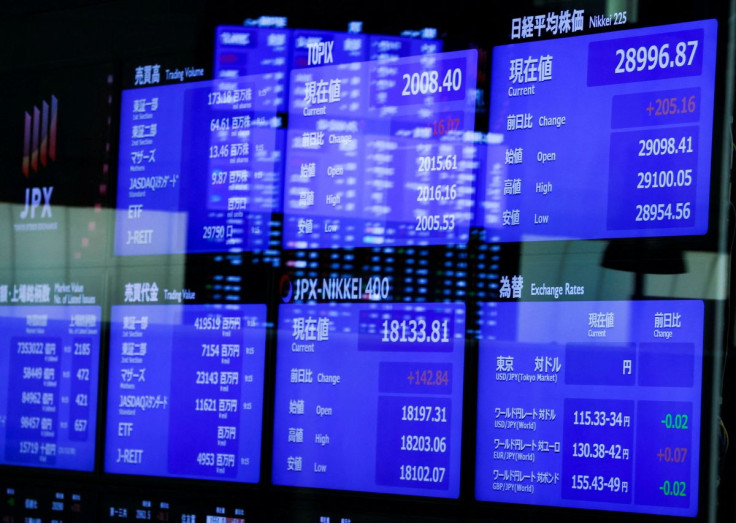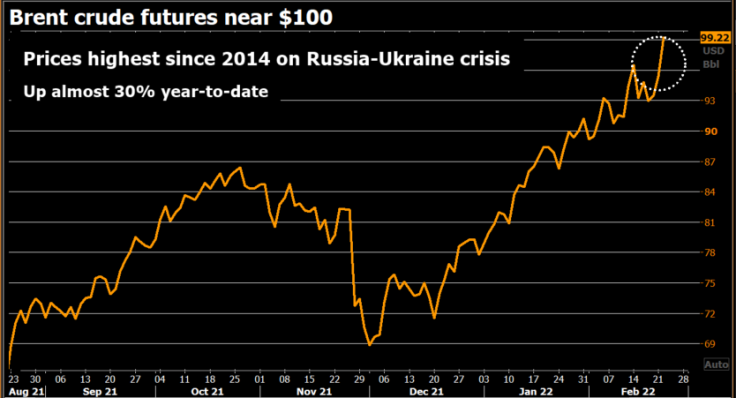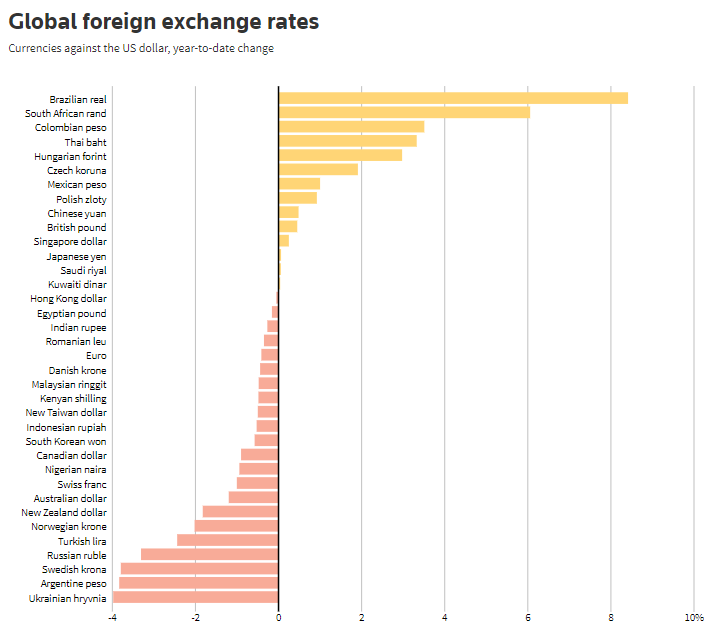Ukraine War Fears Shake Stocks And Send Oil Soaring

Global stock markets clawed back losses on Tuesday as investors held on to hopes that Russia's deployment of troops to two breakaway regions in eastern Ukraine will be as far Moscow goes.
The spectre of war on Europe's eastern flank had flared on Monday, sending oil prices to a seven-year high, after Russian President Vladimir Putin ordered troops into the Donetsk and Luhansk regions of Ukraine.
The United States and its European allies started to announce harsh new sanctions in response, with German Chancellor Olaf Scholz warning that the Nord Stream 2 gas pipeline would now be denied certification to begin operating.
Europe's STOXX 600 index fell nearly 2% to a seven-month low in early trade. But the mood turned more positive and the index was back around Monday's closing level after reports that Russia would recognise the current boundaries of the breakaway regions.
The rouble, which has been hammered by the rising tensions in recent weeks, swept higher in FX markets while German equities - seen as more vulnerable because of the country's heavy reliance on Russian gas - also erased losses of more than 2% to trade flat.
Wall Street also erased losses, with futures gauges for the S&P 500 turning positive and Nasdaq recovering from losses of about 2% to trade down 0.4%.
"We are not in the clear, but that gives a path to de-escalation," said Trium Capital fund manager Peter Kisler, referring to the news on Ukraine border recognition.
The Ukrainian military earlier said that two soldiers had been killed and 12 wounded in shelling by pro-Russian separatists in the east over the past 24 hours.
The prospect of a major European war had prompted investors to dump shares and other riskier assets while Brent crude jumped more than $3 to top $99 at one point for its highest since September 2014, reflecting fears that Russia's energy exports could be disrupted by any conflict. [O/R]
Benchmark government debt was also in demand. German government bond yields hit their lowest level since Feb. 4 while U.S. Treasuries rallied.
"Europe is in a very, very uncomfortable situation," said Michael Hewson at CMC Markets. "What you're getting is a classic risk-off play here."
The MSCI world equity index, which tracks shares in 50 countries, fell to its lowest since Jan. 28 before trimming losses to stand 0.1% down.
MSCI's broadest index of Asia Pacific shares outside Japan had earlier fallen by 1.5%.
Spot gold, meanwhile, turned negative after climbing more than 0.4% to a six-month top of nearly $1,913.
Brent crude -

METALS SHINE, ROUBLE RECOVERS
Washington and European capitals condemned Russia's move into the Ukrainian breakaway regions, vowing new sanctions, while Ukraine's foreign minister said he had been assured of a "resolute and united" response from the European Union.
German Chancellor Olaf Scholz put the certification of the Nord Stream 2 gas pipeline from Russia to Germany on ice, a measure widely considered the toughest Europe is likely to take against Moscow at this stage.
Britain slapped sanctions on five Russian banks and three high-net worth individuals in what Prime Minister Boris Johnson called a "first tranche, the first barrage" of sanctions.
Fears of supply disruption from Russia sent London-traded aluminium to a more than 13-year high of $3,350 a tonne while benchmark nickel hit its highest since August 2011. Shanghai-traded nickel hit a record high.
The Russian rouble slid to a 15-month low in early Asian trading, hurtling below 80 against the dollar before spinning around and climbing again.
The rouble has lost 12% on prospects of a Ukraine invasion, with Russian equities down by a third.
Russia and Ukraine's currencies have tumbled -

© Copyright Thomson Reuters 2024. All rights reserved.




















